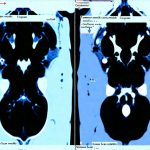Appetite loss, clinically known as anorexia, isn’t simply about not feeling hungry. It’s often a complex symptom pointing towards an underlying issue – physical, psychological, or both. While skipping a meal now and then is normal, persistent and significant reduction in appetite warrants investigation because it can profoundly impact health, leading to malnutrition, weakened immunity, and decreased quality of life. Understanding why someone loses their appetite is crucial for effective intervention, and thankfully, there’s a growing arsenal of diagnostic tools available to help uncover the root cause. These aren’t necessarily about pinpointing an absence of hunger; they are about differentiating between causes, identifying associated conditions, and ruling out serious illnesses.
The human body is remarkably adept at signaling distress, and appetite loss frequently serves as one such signal. It’s important to recognize that this symptom can be incredibly varied in its presentation – some individuals experience a complete lack of interest in food, while others might eat very small portions or avoid specific foods. The duration also matters; a temporary decrease after an illness is different from a prolonged reduction lasting weeks or months. Furthermore, the context surrounding the appetite loss—sudden onset versus gradual decline, associated symptoms like fatigue or weight loss, and any recent life stressors—all contribute to the diagnostic puzzle. This article will explore some of the key tests used to determine the story behind appetite loss, helping you understand what they measure and how they contribute to a comprehensive assessment. If you’re unsure about which tests to bring during your next appointment, resources are available.
Unraveling the Physical Causes
Appetite can be significantly impacted by underlying physical conditions. Often, these are readily identifiable through standard blood work and imaging techniques. A complete blood count (CBC) is frequently one of the first steps in investigating appetite loss because it reveals information about overall health and potential infections or inflammation. Electrolyte imbalances – particularly sodium, potassium, and calcium – can also disrupt normal bodily functions and lead to decreased appetite. Beyond a basic CBC, specific markers are often checked, such as C-reactive protein (CRP) which indicates inflammation levels within the body. Elevated CRP could suggest an infection, autoimmune disease, or other inflammatory condition affecting appetite.
Further investigation might involve testing thyroid function. Hypothyroidism, characterized by an underactive thyroid gland, is a common cause of decreased appetite and fatigue. A simple blood test can measure thyroid-stimulating hormone (TSH) levels, providing crucial diagnostic information. Similarly, liver and kidney function tests are essential. Impaired liver or kidney function can lead to a buildup of toxins in the body, causing nausea, fatigue, and loss of appetite. Imaging techniques like ultrasound, CT scans, or MRI may be employed if internal organ dysfunction is suspected. These scans help visualize organs and identify any structural abnormalities that could explain the symptom.
Finally, it’s crucial to rule out gastrointestinal issues. Conditions such as peptic ulcers, inflammatory bowel disease (IBD), celiac disease, and even simple constipation can all impact appetite. Endoscopy or colonoscopy may be necessary to directly visualize the digestive tract and obtain biopsies for further analysis if indicated by initial tests. It’s important to remember that physical causes are often more straightforward to diagnose and address than psychological ones, making a thorough physical assessment a critical starting point. If you suspect food reactions beyond typical allergies, specific testing can help.
Identifying Underlying Infections
Infections, both acute and chronic, can profoundly suppress appetite. Acute infections like the common cold or flu temporarily decrease appetite as the body directs energy towards fighting off the illness. However, persistent infections require more in-depth testing. – Blood cultures are used to identify bacterial infections circulating in the bloodstream. – Urine analysis checks for urinary tract infections (UTIs), which can sometimes present with vague symptoms like decreased appetite and fatigue. – Stool tests can reveal parasitic or bacterial infections within the digestive system.
More insidious chronic infections, such as tuberculosis (TB) or HIV/AIDS, often cause gradual appetite loss alongside other systemic symptoms. Diagnostic testing for these conditions includes specific blood tests and imaging techniques. Furthermore, opportunistic infections in immunocompromised individuals frequently lead to decreased appetite. Testing for Cytomegalovirus (CMV), Epstein-Barr virus (EBV), and other pathogens might be necessary if the patient’s immune system is compromised due to illness or medication. It’s important to note that a history of travel, exposure to sick individuals, or risky behaviors should raise suspicion for infectious causes. Understanding tests that help explain bloating can also reveal underlying issues.
The Role of Medication Side Effects
Many medications can have appetite-suppressing side effects. This is particularly true for certain chemotherapy drugs, antidepressants (SSRIs), stimulants used to treat ADHD, and some pain medications. – A thorough medication review by a healthcare professional is essential. – It’s vital to consider both prescription and over-the-counter medications, as well as any supplements the patient may be taking.
If medication side effects are suspected, adjusting the dosage, switching to an alternative medication (if available), or temporarily discontinuing the medication (under medical supervision) might alleviate the appetite loss. It’s also important to consider drug interactions – combining multiple medications can sometimes exacerbate side effects. Patients should always inform their healthcare provider of all medications and supplements they are taking. Often, simply recognizing a medication as the culprit can provide significant relief and guide treatment adjustments.
Assessing Nutritional Deficiencies
Prolonged appetite loss inevitably leads to nutritional deficiencies, but sometimes these deficiencies precede or exacerbate the appetite loss itself. Certain vitamin and mineral deficiencies – particularly iron, zinc, vitamin D, and B vitamins – can directly impact appetite regulation and overall well-being. – Blood tests are used to measure levels of key nutrients. – Specific attention is paid to folate and vitamin B12, as deficiencies in these vitamins can cause fatigue, weakness, and loss of appetite.
Iron deficiency anemia, a common condition particularly among women, can lead to profound fatigue and decreased energy levels, contributing to reduced appetite. Zinc plays a crucial role in taste and smell perception; therefore, zinc deficiency can diminish the enjoyment of food. Supplementation may be recommended to address identified deficiencies, but it’s important to avoid self-treating with high doses of vitamins or minerals without medical guidance. A balanced diet is always preferable, and addressing underlying causes of malabsorption (like celiac disease) is crucial for long-term nutritional health. In some cases, digestive tests should be done before surgery to assess overall gut health.
Delving into the Psychological Landscape
While physical factors are frequently responsible for appetite loss, psychological influences often play a significant role, sometimes in combination with physical conditions. Depression, anxiety, stress, and eating disorders can all profoundly impact appetite regulation. Unlike identifying a physical cause through blood work, assessing psychological contributions requires a more nuanced approach. A thorough clinical interview conducted by a mental health professional is usually the first step. This involves exploring the patient’s emotional state, recent life stressors, history of trauma or mental illness, and any feelings of hopelessness or despair.
Screening tools like the Patient Health Questionnaire-9 (PHQ-9) can help assess for symptoms of depression. Similarly, anxiety scales like the Generalized Anxiety Disorder 7-item scale (GAD-7) can identify individuals experiencing significant anxiety levels. These questionnaires provide a standardized way to measure symptom severity and track progress over time. It’s crucial to differentiate between appetite loss as a symptom of an underlying mental health condition versus a primary eating disorder. Eating disorders like anorexia nervosa or bulimia involve distorted body image, restrictive eating behaviors, and often a fear of weight gain. Diagnostic criteria for these conditions are well-defined and require specialized assessment by experienced professionals.
The role of stress cannot be underestimated. Chronic stress elevates cortisol levels, which can disrupt appetite regulation and lead to emotional eating or loss of appetite. Identifying sources of stress and developing coping mechanisms – such as mindfulness exercises, yoga, or therapy – can be beneficial in restoring healthy eating patterns. It’s important to remember that psychological factors are not always easy to identify or address; however, recognizing their influence is essential for a holistic approach to treatment.
The interplay between physical and psychological factors is often complex. For example, chronic pain can lead to depression, which then contributes to appetite loss. Or, an underlying medical condition might create anxiety about health, resulting in restrictive eating behaviors. A comprehensive assessment considers all potential contributing factors and tailors treatment accordingly. Addressing the root cause – whether it’s a physical illness, mental health condition, or combination of both – is key to restoring healthy appetite and overall well-being. If symptoms don’t match tests, doctors investigate further to find answers. Also, understanding how digestive tests help with low appetite can be invaluable.


















